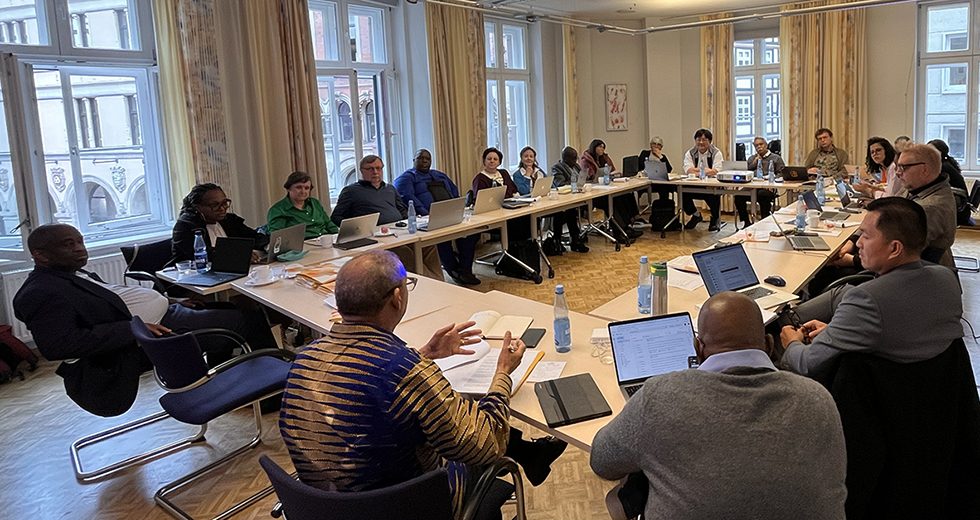Business of Council takes next steps
Posted on April 11, 2024 by Phil Tanis

The work of the 2025 General Council of the World Communion of Reformed Churches (WCRC) was brought into sharper focus during a series of meetings in Hannover, Germany, last week. This marks a major step in preparing the contents for discussion and discernment during the 27th General Council to be held in Chiang Mai, Thailand, 14-23 October 2025.
Draft concept papers were shared by the leaders of the five working groups developing them for discussion and refinement. Around the extended discussion table were members of the WCRC Strategic Planning Programme Group (SPPG), moderators of the working groups, regional representatives, and executive staff.
The five concept papers under discussion were:
- Communion in an Alienated and Reconnected World
- Covenanting for Justice
- Doing Theology for Transformation
- Engaging in God’s Mission in Contexts of Crisis
- Ecumenical and Interreligious Relations
“This process includes qualitative inputs by WCRC’s Executive Committee as well as a grassroots conversation which should enrich it further, thus ensuring that member churches and stake holders at all levels join in shaping what we discuss in the General Council which will in turn shape the future of the Communion,” said Setri Nyomi, WCRC interim general secretary.
The group agreed that theology should inform all of the papers, rooted in the General Council’s theme “Perservere in Your Witness” and its informing Scripture, Hebrews 12:1. Other priorities to be incorporated include strengthening a communion of inspired people built on relationships, reading and responding to the signs of the times, and untethering the Communion and its members from their physical buildings.
“Christianity is called to become a movement beyond the church structure. Sometimes structures kill the spirit of ecumenism,” said Najla Kassab, WCRC president.
“We must liberate this work from the confinement of institutions,” said Rathnakara Sadananda. “Struggles for economic and ecologic justice are far beyond the institutional nature of the Communion.”
“What shall we do moving forward to ensure that this work does not remain in boardrooms and academia but also to the churches?” asked Lungile Mpetsheni.
“John Calvin is a refugee running away from persecution, preaching to a persecuted congregation. This is the essence of Reformed theology—the discovery of the concern of God and the woundedness of God and how it continues to speak in the interreligious contexts and the ecumenical contexts,” said Allan Boesak. “What does communion mean when we share the Lord’s Supper, and what does that mean to justice?”
“In the Book of Acts, the breaking of the bread was where the connection between commitment to justice and communion was made,” said Dora Arce Valentin.
“How do we live out our faith as a result of how our world has evolved around us?” asked Roderick Hewitt. “We must reform and reorient our priority of peacebuilding to fit a rereading of the sovereignty of God and the wellbeing of all creation.”
“Koinonia—communion—is bigger than church. If one suffers, all suffers. It’s a depth of commitment that’s more than fellowship,” said Anna Case-Winters.
“So, in the light of the issues raised, what is the mission of God, the mission of the church?” asked Neal Presa. “How do we lift up the mission of the church and the God of life?”
Following the rich discussions of 4-6 April, the concept papers will be revised, reviewed again by the SPPG, and then presented to the WCRC Executive Committee at its meeting in May for their input.
The papers will then be finalized, translated, and sent to WCRC member churches shortly thereafter, providing ample time for review and discussion, before they are formally presented as part of the business of the 2025 General Council.
 World Communion of Reformed Churches
World Communion of Reformed Churches